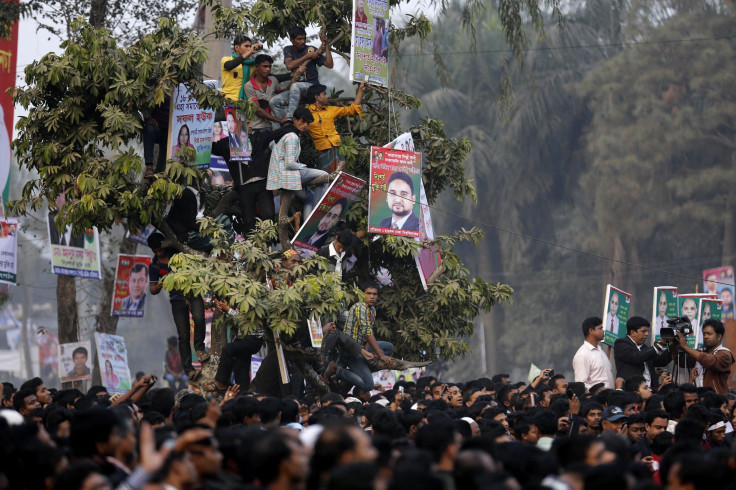Bangladesh Bus Firebombed By Suspected Anti-Government Protesters Aligned With BNP, Khaleda Zia

A petrol bomb exploded in a packed Bangladeshi bus carrying sleeping passengers on Monday night. At least seven people were burned to death and as many as 20 others were injured, but that number is expected to rise as many of the wounded are in critical condition, according to Agence France Presse.
"Seven passengers were burnt to death in the bus after the petrol bomb was thrown at 4 a.m.," district police chief Tuttul Chakrabarty told AFP. "Five of the passengers are fighting for their life as 40-80 per cent of their bodies were burnt. They have been shifted to a hospital in the capital.”
No one has claimed responsibility for the firebomb, but many suspect anti-government protesters were behind the attack. Bangladesh’s opposition party was charged with a similar attack on a passenger bus last week that critically injured nearly 30 people, according to Reuters.
Bangladesh is in the midst of yet another upswing in political violence this month after opposition leader Begum Khaleda Zia launched a series of anti-government protests. At least 53 people have been killed in the political unrest this month and dozens more were wounded, according to AFP.
Zia served as prime minister of Bangladesh from 1991 to 1996 and again from 2001 to 2006, and is now the chairperson for the Bangladesh Nationalist Party (BNP). The BNP, and Zia in particular, have been widely criticized for inviting the recent violence in the country. Zia and several other BNP leaders are also being sued for the more than 40 deaths that resulted from the unrest and for the previous bus attack, the Press Trust of India reported.
Violence began this month on the anniversary of Bangladeshi Prime Minister Sheikh Hasina’s party's refusal to hold elections. On Jan. 6, the BNP instituted a blockade in the country’s capital and several country-wide strikes, hoping that the economic instability would force Hasina into holding an election.
Since then, unrest has been nearly constant and thousands of anti-government protests have been arrested.
In 2011, New Jersey State honored Zia as a “fighter for democracy,” for her contribution in fighting terrorism and advocacy for democracy in Bangladesh.
© Copyright IBTimes 2024. All rights reserved.






















